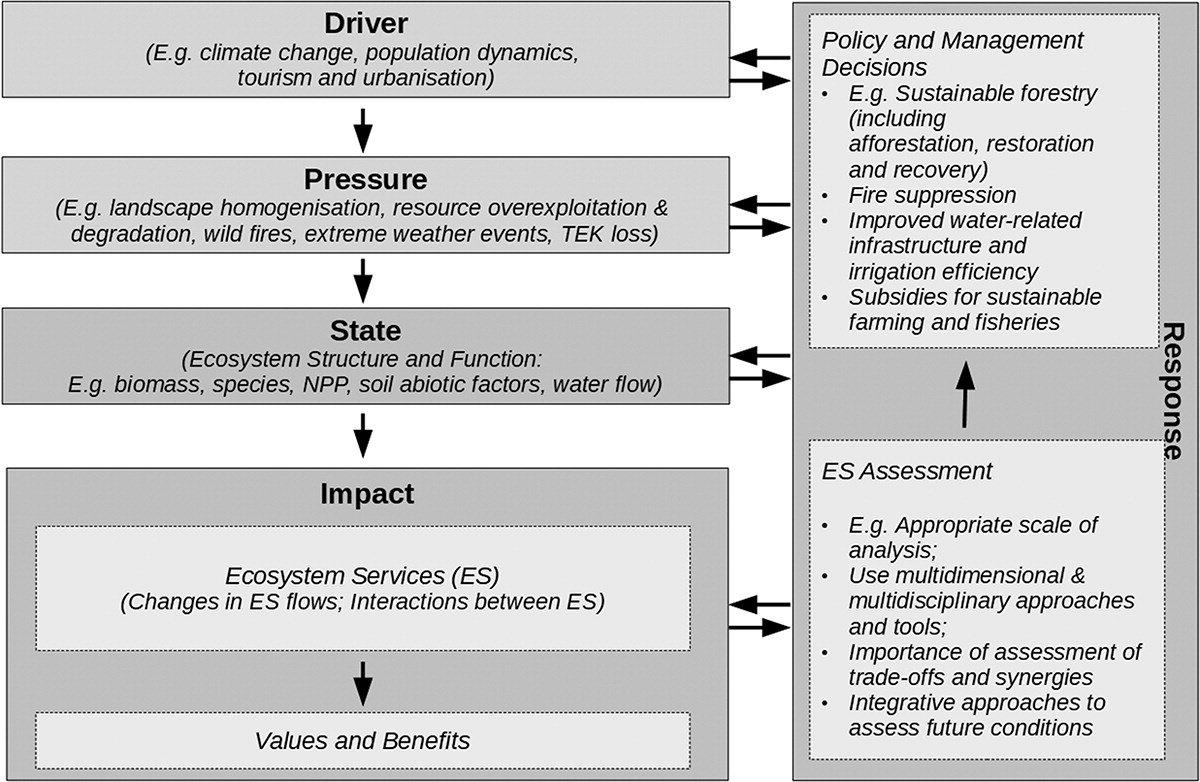Balzan MV, Pinheiro AM, Mascarenhas A, Morán-Ordóñez A, Ruiz-Frau A, Carvalho-Santos C, Vogiatzakis I, Arends J, Santana-Garcon J, Roces-Díaz JV, Brotons L, Campagne CS, Roche P, de Miguel S, Targetti S, Drakou E, Vlami V, Baró F, Geijzendorffer I (2019) Improving ecosystem assessments in Mediterranean social-ecological systems: a DPSIR analysis.Ecosystems and People, 15, 1, 136-155, DOI: 10.1080/26395916.2019.1598499
Abstract
Social-ecological systems in the Mediterranean Basin are characterised by high biodiversity and a prolonged cultural influence, leading to the co-evolution of these systems. The unique characteristics of Mediterranean social-ecological systems, current pressures leading to a decline in ecosystem services, and the need for coordinated action are recognised by policies promoting the protection and sustainable use of the region’s heritage. Ecosystem assessments provide valuable information on the capacity of the Mediterranean Basin to ensure the well-being of its population. However, most assessments simplify the complexity of these systems, which may lead to inaccurate ecosystem services supply and flow estimations. This paper uses the Driver-Pressure-State-Impact-Response (DPSIR) model to guide an expert consultation that identifies the key characteristics of the Mediterranean social-ecological systems and analyses how these should be included in ecosystem assessments. Data collection was carried out through expert consultation with ecosystem services researchers. Multiple sources of complexity were identified, including the relationship between historical human activities, biodiversity spatio-temporal patterns, as well as the seasonal and long-term variability in ecosystem services. The importance of incorporating this complexity in ecosystem assessments for evidence-based decision-making is identified, suggesting that there is a need to adapt assessment approaches for the Mediterranean Basin social-ecological systems.

